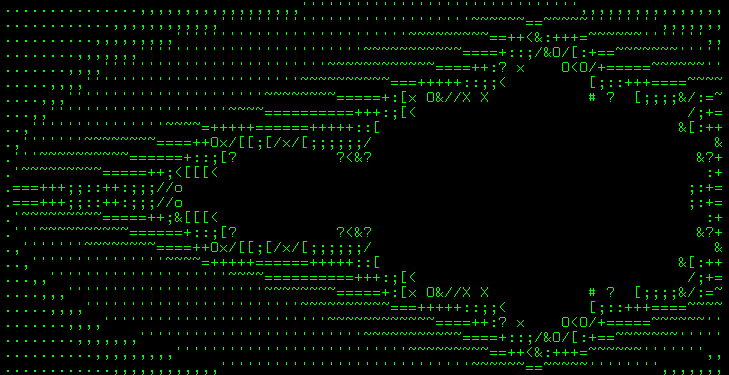Have you ever wondered how a compiler works, but you never found courage to find out? Then this project is for you (N.B.: a detailed description is available here).
I have never had the chance to look under the hood either, but one week-end I have decided to to write a translator from the esoteric programming language wend (short for week-end), which I just invented myself, into regular GNU assembly. The goal is to keep the code as tiny as possible, 500-ish lines of python sounds great.
Here is a program that uses virtually all concepts in Wend:
main() {
// square root of a fixed-point number
// stored in a 32 bit integer variable, shift is the precision
int sqrt(int n, int shift) {
int x;
int x_old;
int n_one;
if n > 2147483647/shift { // pay attention to potential overflows
return 2 * sqrt(n / 4, shift);
}
x = shift; // initial guess 1.0, can do better, but oh well
n_one = n * shift; // need to compensate for fixp division
while true {
x_old = x;
x = (x + n_one / x) / 2;
if abs(x - x_old) <= 1 {
return x;
}
}
}
int abs(int x) {
if x < 0 {
return -x;
} else {
return x;
}
}
// 25735 is approximately equal to pi * 8192;
// expected value of the output is sqrt(pi) * 8192 approx 14519
println sqrt(25735, 8192);
}make testIt is so dull to compute Fibonacci numbers, so here are more eyecandy examples for our compiler, check test-programs/gfx/*.wend files.
make gfx




